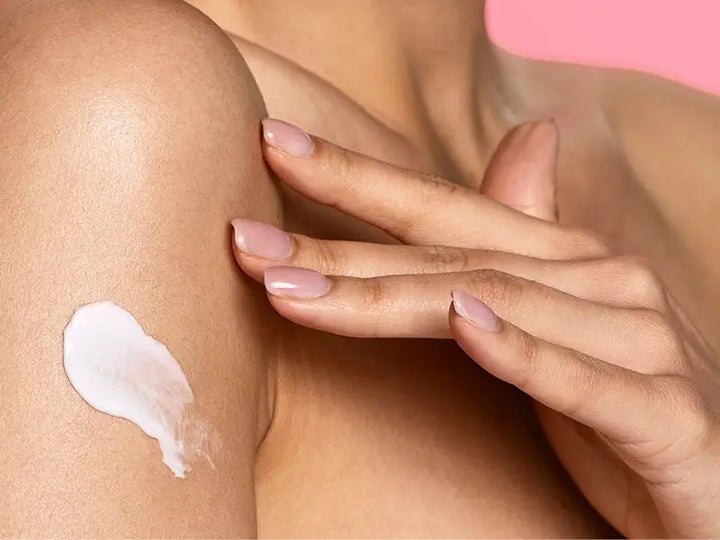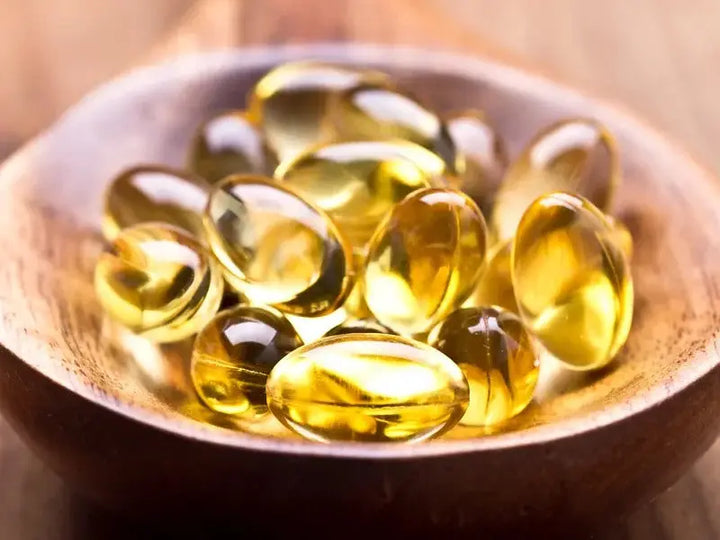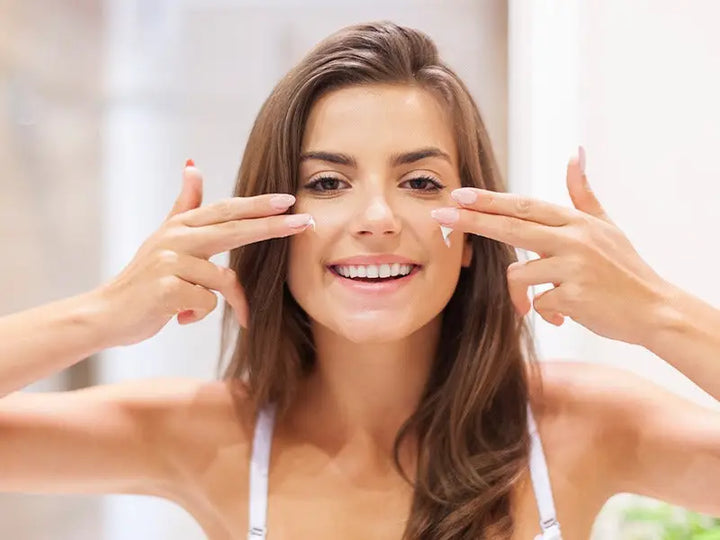Sunscreen terminology includes terms like SPF (Sun Protection Factor), which measures protection against UVB rays, and broad-spectrum, which indicates protection against both UVA and UVB rays. These terms provide information about the level of UV protection a sunscreen offers. SPF 30 or higher is recommended for adequate protection.
FDA regulations require sunscreen labels to follow specific guidelines for SPF values, broad-spectrum claims, and water resistance. Sunscreens can no longer claim to be "waterproof" or "sweatproof," as they must indicate a specific time frame for water resistance. The regulations aim to provide consumers with accurate information about a sunscreen's effectiveness.
Important ingredients to look for in tinted sunscreen include zinc oxide and titanium dioxide, which offer effective UV protection without harming coral reefs. Ingredients to avoid include oxybenzone and octinoxate, as they have been shown to harm coral reefs and are now banned in certain regions.
Understanding sunscreen terminology, FDA regulations, and the impact of ingredients on coral reefs can help consumers make informed choices about sunscreen products.
Importance of sunscreen for protecting the skin from harmful UV rays
Wearing sunscreen is crucial for protecting the skin from the harmful effects of UV rays. UV rays can cause premature aging, wrinkles, and sunspots, as well as increase the risk of skin cancer. Sunscreen helps to prevent premature aging and diseases caused by UVA and UVB rays by providing a barrier between the skin and the harmful rays. Additionally, sunscreen can also protect the skin from other sources of premature aging, such as blue light from digital devices, which can contribute to skin damage.
Tinted sunscreens offer additional benefits, including protection from visible light and potential reduction of hyperpigmentation and melasma. Visible light protection is important because it can also contribute to skin damage and aging. Tinted sunscreens provide an added layer of defense against these harmful effects, while also offering the cosmetic benefit of evening out skin tone and reducing the appearance of hyperpigmentation and melasma.
In conclusion, wearing sunscreen is essential for protecting the skin from UV rays and other sources of premature aging. Tinted sunscreens provide added benefits by offering protection from visible light and helping to reduce skin discoloration. Taking these precautions can help maintain healthy and youthful-looking skin.
Growing popularity of tinted sunscreens as a cosmetic and protective solution
The growing popularity of tinted sunscreens as a cosmetic and protective solution is evident in the increasing number of beauty and skincare brands offering these products. Tinted sunscreens provide a convenient way to incorporate sun protection into a daily beauty routine while also offering coverage and a more polished complexion. These multi-tasking products appeal to individuals looking for a simple yet effective way to protect their skin from sun damage while also providing additional benefits such as evening out skin tone and providing a natural, radiant finish. With the rise of consumers seeking out skincare products that combine both protection and cosmetic benefits, tinted sunscreens have become a go-to option for those looking to streamline their beauty regimen. As the demand for multifunctional skincare continues to grow, it's no surprise that tinted sunscreens have become an increasingly popular choice for individuals seeking to simplify and enhance their daily skincare routine.
Understanding Tinted Sunscreens
Tinted sunscreens are designed to provide sun protection while also offering a light tint to even out the skin tone and provide a subtle coverage. When understanding tinted sunscreens, it is important to consider the primary function of the product, which is to protect the skin from UV rays while also providing a tint for aesthetic purposes.
The shade and consistency of the tint are also key factors to consider. Tinted sunscreens come in varying shades to match different skin tones, and the consistency can range from sheer to medium coverage. It is essential to choose a shade and consistency that best suits your skin type and desired level of coverage.
It's important to note the difference between tinted sunscreen and tinted moisturizer with SPF. While both products offer sun protection and a tint, tinted moisturizer is primarily a moisturizer with added SPF and a tint for coverage. Tinted sunscreen, on the other hand, is primarily sunscreen with added tint for coverage.
In conclusion, when understanding tinted sunscreens, it's crucial to consider the primary function of sun protection, the varying shades and consistencies available, and the distinction between tinted sunscreen and tinted moisturizer with SPF.
Definition and purpose of tinted sunscreens
Tinted sunscreens are a combination of traditional sunscreen and pigmented foundation, designed to provide both sun protection and light coverage for the skin. The purpose of tinted sunscreens is to offer a natural-looking, even skin tone while also shielding the skin from harmful UV rays. The added pigments in the sunscreen are carefully formulated to match various skin tones, providing a seamless blend with the wearer's complexion.
Tinted sunscreens differ from tinted moisturizers with SPF in that they contain higher levels of SPF active ingredients for better sun protection. This makes them more reliable and effective in safeguarding the skin from sun damage compared to tinted moisturizers with lower SPF levels.
Key ingredients commonly found in tinted sunscreens include zinc oxide, titanium dioxide, and iron oxide, which provide broad-spectrum protection against UVA and UVB rays while also imparting a natural tint to the skin. These ingredients not only protect the skin but also offer a subtle, sunkissed glow. Additionally, tinted sunscreens may include nourishing ingredients like vitamin C and antioxidants, which provide added benefits for skin protection.
Factors to Consider when Choosing a Tinted Sunscreen
When choosing a tinted sunscreen, there are several factors to consider. First, the SPF amount is crucial in protecting your skin from harmful UV rays. It is important to choose a sunscreen with SPF 30 or higher to ensure adequate protection. Additionally, consider the shade and consistency of the tinted sunscreen to match your skin tone and preferred texture.
Active ingredients also play a significant role in the effectiveness of the sunscreen. Look for mineral-based sunscreens, such as zinc oxide and titanium dioxide, which provide broad-spectrum protection and are suitable for sensitive skin.
Another important factor to consider is the presence of iron oxides in the tinted sunscreen. Iron oxides can provide added protection against blue light emitted from electronic devices, which can contribute to skin damage and aging.
In conclusion, when choosing a tinted sunscreen, it is important to consider the SPF amount, shade and consistency, active ingredients, and the inclusion of iron oxides for added protection. By taking these factors into account, you can ensure that you are using a sunscreen that provides optimal protection for your skin.
- Skin type: catering to oily, dry, or sensitive skin
When it comes to choosing a tinted sunscreen, it is crucial to consider your skin type in order to ensure the best protection and coverage. For those with oily skin, selecting an oil-free and non-comedogenic tinted sunscreen is essential to prevent clogged pores and excess shine. On the other hand, individuals with dry skin should look for a tinted sunscreen that is deeply moisturizing, preferably containing ingredients like hyaluronic acid to provide much-needed hydration.
For sensitive skin, opting for a hypoallergenic tinted sunscreen with calming properties is key to prevent irritation and redness. Additionally, it is important to avoid harsh chemicals and fragrances that may trigger sensitivity.
Regardless of skin type, a good tinted sunscreen should offer broad-spectrum protection against UVA and UVB rays. Key ingredients to look for in tinted sunscreen include zinc oxide and titanium dioxide for physical sun protection, as well as antioxidants like vitamin C and E to combat free radicals.
By choosing a tinted sunscreen that caters to your specific skin type, you can ensure that your skin is both shielded from the sun's harmful rays and receives the necessary care it needs.
- Skin tone: finding a shade that matches your complexion
The tinted sunscreen comes in a wide range of shade options, including light, medium, dark, and various undertones such as warm, cool, or neutral. To choose a shade that matches your complexion, it is important to consider your skin tone, undertone, and any specific concerns such as redness or discoloration.
For those with fair skin, a light shade with a cool or neutral undertone is likely the best match. Medium skin tones can opt for shades with warm or neutral undertones, while those with darker skin tones should look for shades with warm undertones to complement their complexion.
Finding a shade that matches your skin tone can greatly enhance the overall appearance of the sunscreen on your face. It can provide a more natural and seamless finish, eliminating the risk of looking too light or too dark, which can be distracting and unflattering. Additionally, matching your complexion ensures that the sunscreen blends well and provides the intended coverage and protection.
By considering the shade options and selecting the one that best matches your complexion, you can enhance the appearance of the tinted sunscreen while enjoying the benefits of sun protection and a more even skin tone.
- SPF level: ensuring sufficient protection against UV rays
Choosing a tinted sunscreen with the right SPF level is crucial in ensuring sufficient protection against both UVA and UVB rays. SPF, or sun protection factor, measures the level of protection a sunscreen provides against UVB rays, which cause sunburn, and UVA rays, which contribute to premature aging and skin damage. It is recommended to choose a tinted sunscreen with at least SPF 30, as this offers a high level of protection against both types of UV rays.
In addition to providing protection against UV rays, a tinted sunscreen with the right SPF level also defends the skin against premature aging. UV rays can cause fine lines, wrinkles, and sun spots, leading to premature aging of the skin. Furthermore, recent studies have shown that blue light from electronic devices can also contribute to premature aging. The SPF in tinted sunscreens can act as a barrier against these external sources of aging, keeping the skin looking youthful and healthy.
In conclusion, selecting a tinted sunscreen with the appropriate SPF level is essential for safeguarding the skin against UVA and UVB rays, as well as preventing premature aging caused by these rays and blue light exposure. It is important to prioritize the level of protection offered by the SPF in tinted sunscreens to maintain the overall health and appearance of the skin.
- Broad-spectrum protection: safeguarding against both UVA and UVB rays
Broad-spectrum protection is crucial when it comes to safeguarding our skin against the harmful effects of the sun's rays. UVA rays can penetrate deep into the skin, causing premature aging, while UVB rays primarily affect the skin's outer layers, potentially leading to sunburn and skin cancer. Therefore, it is important to use sunscreen and skin care products that offer broad-spectrum protection to ensure comprehensive defense against both UVA and UVB rays. By using products with broad-spectrum protection, we can minimize the risk of sun damage, premature aging, and skin cancer, allowing us to enjoy the outdoors safely and without worry.
The Benefits of Tinted Sunscreens
Tinted sunscreens offer a multitude of benefits for protecting the skin from the damaging effects of the sun. These products provide a protective barrier against harmful UV rays, which can lead to premature aging and an increased risk of skin cancer. Tinted sunscreens also help to even out skin tone by minimizing the appearance of redness and discoloration, while also blocking visible light that can contribute to skin damage.
For individuals prone to hyperpigmentation or melasma, tinted sunscreens are particularly advantageous. These products can help to prevent and reduce the appearance of dark spots and hyperpigmentation caused by sun exposure, providing an added level of defense against these skin concerns.
Overall, tinted sunscreens offer a convenient way to protect and care for the skin, while also providing the added benefits of a tint that can enhance the complexion. By incorporating a tinted sunscreen into a daily skincare routine, individuals can enjoy the protective benefits of sun protection, along with the added advantages of even skin tone and reduction of hyperpigmentation.
- Combined skincare and makeup benefits in one product
Tinted sunscreen offers fantastic benefits for your skincare and makeup routine. This multitasking product provides the perfect combination of skincare and makeup, offering protection from harmful UV rays while also providing a natural-looking finish. The tint in the sunscreen helps even out skin tone, giving your complexion a more polished appearance.
In addition to providing coverage, tinted sunscreen offers sun protection, preventing premature aging and damage that can result from exposure to UV rays. By incorporating this product into your routine, you save time and effort by streamlining the process of applying multiple skincare and makeup products. This is especially beneficial for those with busy schedules, allowing you to simplify your daily beauty regimen.
Overall, using tinted sunscreen is a convenient way to achieve a flawless complexion while also taking care of your skin. With its dual purpose of providing UV protection and a natural finish, tinted sunscreen can help simplify your beauty routine, making it an essential product for anyone looking to optimize their skincare and makeup regimen.
Protect your eyes in the sun
The importance of protecting your eyes in the sun cannot be overstated. Exposure to harmful UV rays can lead to a variety of eye problems, including cataracts, macular degeneration, and even skin cancer around the eyelids. Proper eye protection, such as wearing sunglasses with UVA and UVB protection, is essential in preventing these issues.
Not protecting your eyes from reflected sunlight and artificial light can lead to discomfort, such as eye strain, headaches, and sensitivity to light. Long-term exposure to these sources of light can also increase the risk of cataracts and other eye conditions.
It is crucial to take precautions to protect children's eyes from sun damage, as their eyes are more susceptible to UV damage than adults' eyes. This includes keeping them out of direct strong sunlight, covering up with clothing, applying sunscreen, and ensuring they wear sunglasses with proper UV protection.
In conclusion, proper eye protection is crucial in preventing eye damage from the sun. This includes wearing sunglasses with UVA and UVB protection and taking additional precautions for children to protect their eyes from sun damage. Don't forget that our eyes are just as important as our skin when it comes to sun protection.
FAQs about Sunscreens
In this section, we will address common questions and concerns about sunscreens, including their effectiveness, application, and choosing the right one for your skin type.
1. Do sunscreens expire?
Yes, sunscreens do expire. Most sunscreens have a shelf life of about 2-3 years, but this can vary depending on the specific ingredients and formulation. It's important to check the expiration date on the packaging and replace your sunscreen if it has expired to ensure adequate protection from the sun.
2. How often should sunscreen be reapplied?
Sunscreen should be reapplied every 2 hours, or more frequently if you are swimming or sweating. Even if your sunscreen claims to be water-resistant, it's still crucial to reapply after being in the water to maintain its effectiveness.
3. What is broad-spectrum sunscreen?
Broad-spectrum sunscreen protects against both UVA and UVB rays. UVA rays can prematurely age the skin, while UVB rays can cause sunburn. It's important to choose a broad-spectrum sunscreen to ensure comprehensive protection from the sun's harmful rays.
4. Can I use expired sunscreen?
Using expired sunscreen can reduce its effectiveness in protecting your skin from the sun's harmful rays. It's best to replace expired sunscreen to ensure you are adequately protected.
5. When should I apply tinted moisturiser in my skincare routine?
After cleansing and applying face serums, the next step in your skincare routine is to apply tinted moisturiser. This should be the final step before applying your makeup. Simply squeeze a small amount of tinted moisturiser onto your fingertips and gently massage it into your skin in a circular motion, making sure to blend it evenly.
Tinted moisturiser can also be used as a replacement for foundation, providing a lighter coverage while still adding a touch of color to your complexion. However, it's important to note that if your tinted moisturiser does not contain SPF, you will need to apply additional sunscreen to protect your skin from the sun's rays.
Including a tinted moisturiser in your skincare routine can help add moisture and a hint of color to your skin, giving you a natural and radiant look. It's a quick and easy way to streamline your morning routine while still caring for your skin. So, don't forget to incorporate this versatile product into your daily beauty regimen.
6. How does tinted moisturiser differ from foundation or tinted sunscreen?
Tinted moisturiser differs from foundation or tinted sunscreen in several key ways. Firstly, tinted moisturiser provides hydration and nourishment to the skin, while foundation and tinted sunscreen focus more on coverage and sun protection. Tinted moisturisers also have a lighter formula compared to foundation, making them suitable for everyday wear and creating a 'no-makeup makeup' look.
In terms of coverage and finish, tinted moisturisers offer a sheer to light coverage with a natural, dewy finish, perfect for those looking for a more subtle and effortless look. On the other hand, foundation provides medium to full coverage with a range of finishes, from matte to dewy, while tinted sunscreen primarily focuses on providing sun protection with minimal coverage.
The specific benefits and purposes of tinted moisturiser include evening out skin tone, providing light coverage, adding a natural glow, and offering hydration and nourishment to the skin. It also serves as a multi-purpose skincare product, combining the benefits of a moisturiser, sunscreen, and light coverage makeup in one.
Overall, tinted moisturiser is a versatile product that prioritizes hydration, light coverage, and a natural look, making it a great option for those wanting a more low-maintenance approach to their makeup routine.
7. Is SPF50 better than 30 for the face?
SPF50 offers higher UVB protection than SPF30, blocking around 98% of UVB rays compared to SPF30 which blocks around 97%. This small difference may not seem significant, but it can make a noticeable impact, especially for those with fair or sensitive skin. Under-application is a risk with both SPFs, but it may be more critical with SPF30 as the margin of error is smaller. Broad-spectrum protection is important because it protects against both UVA and UVB rays, reducing the risk of skin cancer and premature aging. Using a higher SPF, like SPF50, can offer added benefits for prolonged sun exposure, providing an extra layer of protection. Reapplication should be done every 2 hours, especially when swimming or sweating. In conclusion, while both SPFs provide substantial protection, SPF50 offers slightly more UVB protection and may be more forgiving for under-application. However, the most crucial factor is consistent and thorough application, alongside broad-spectrum protection and regular reapplication.
8. Should I wear SPF on my face every day?
Yes, wearing SPF on your face every day is essential for protecting your skin from the harmful effects of UVA rays, regardless of the weather or season. UVA rays have the ability to penetrate through clouds, windows, and even digital devices, leading to skin damage such as premature aging, sunburn, and an increased risk of skin cancer.
Even on overcast days or during the winter months, UVA rays can still reach your skin and cause harm. This makes it crucial to incorporate SPF into your daily skincare routine to provide continuous protection. Furthermore, digital devices emit blue light, which can also contribute to skin damage, making it crucial to shield your skin with SPF daily.
The potential risks of not wearing SPF daily are significant, including premature aging, sunburn, and an increased risk of developing skin cancer. By incorporating SPF into your daily routine, you can safeguard your skin against these risks and maintain its health and youthful appearance.
In conclusion, regardless of the weather or season, daily protection with SPF is a non-negotiable step in maintaining the health and appearance of your skin. Don't forget to apply SPF as the last step of your skincare routine every morning to keep your skin safe from UVA rays and potential damage.
9. Why Should You Wear SPF In Winter?
Many people think that wearing sunscreen is only necessary during the summer months, but the truth is that protecting your skin from UVA rays is important year-round. UVA rays are present even in the winter, and they can penetrate through clouds and glass, leading to sun damage and premature aging. Additionally, snow and water can reflect UV rays, increasing the risk of sunburn and skin damage.
In addition to UVA rays, blue light from digital devices has been found to contribute to skin aging. This means that even in cold, bright climates like skiing in the Alps, it's essential to wear SPF to protect your skin from various sources of UV damage.
Therefore, it's crucial to incorporate sunscreen into your winter skincare routine to shield your skin from harmful UVA rays and blue light, and prevent premature aging. Whether you're going for a walk or hitting the slopes, wearing SPF can help keep your skin healthy and youthful.
10. Does makeup with SPF work?
Makeup with SPF can provide some level of sun protection, but it is not enough to rely on it alone for complete protection. The SPF in makeup is typically not enough to provide adequate protection for your skin, as it would require a large amount to reach the labeled SPF. Additionally, the coverage and application of makeup may not be even enough to provide reliable sun protection.
Proper sunscreen application is essential for optimal sun protection. This includes using a sunscreen with a high SPF, covering all exposed skin, and reapplying as directed, especially after swimming or sweating. It's also important to look for sunscreens with chemical-based or mineral-based UV ingredients that can provide broad-spectrum protection against UVA and UVB rays.
While makeup with SPF can offer some level of protection, it should not be relied upon as the sole means of sun protection. Incorporating regular use of sunscreen into your skincare routine is crucial for protecting your skin from the harmful effects of sun exposure.



















